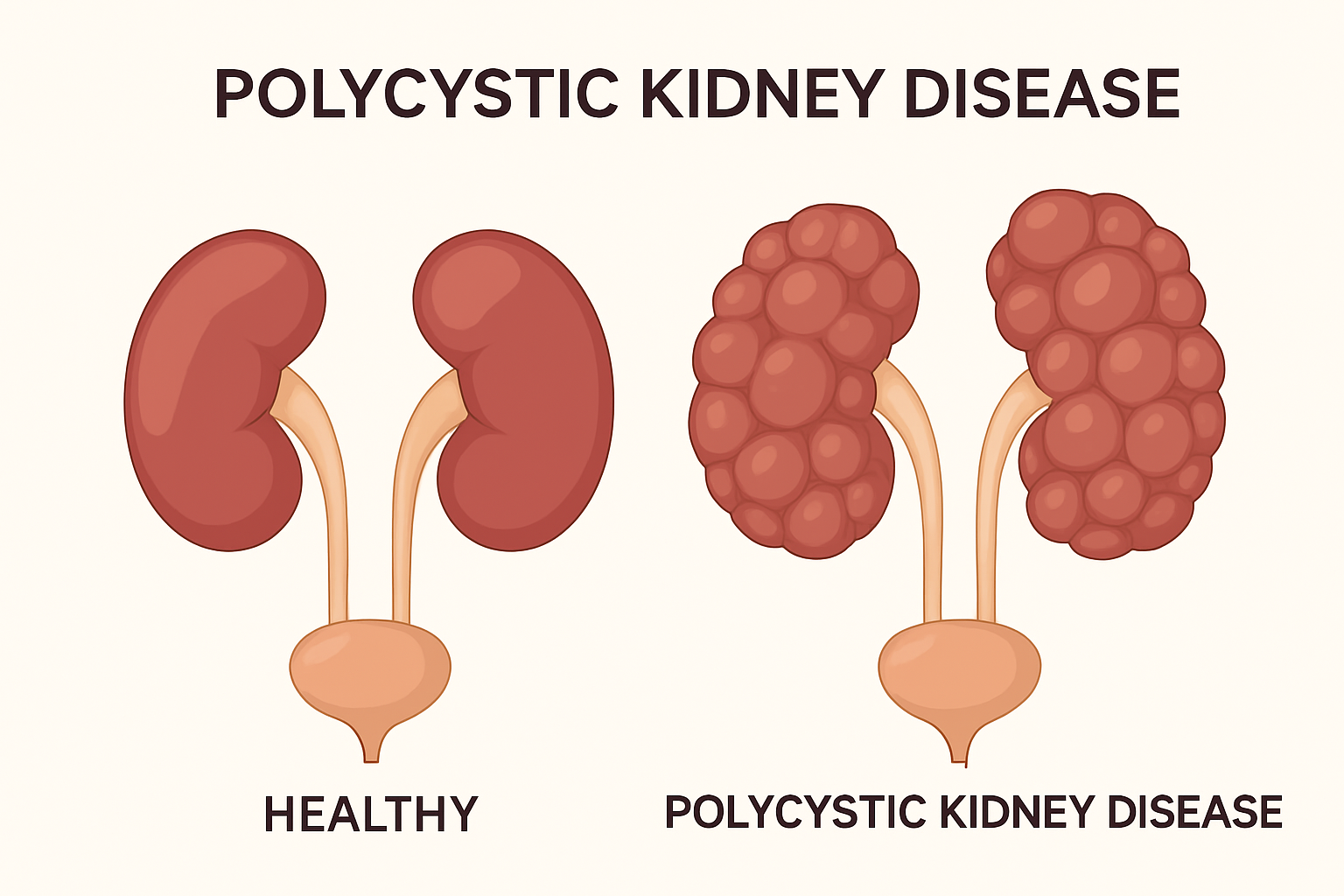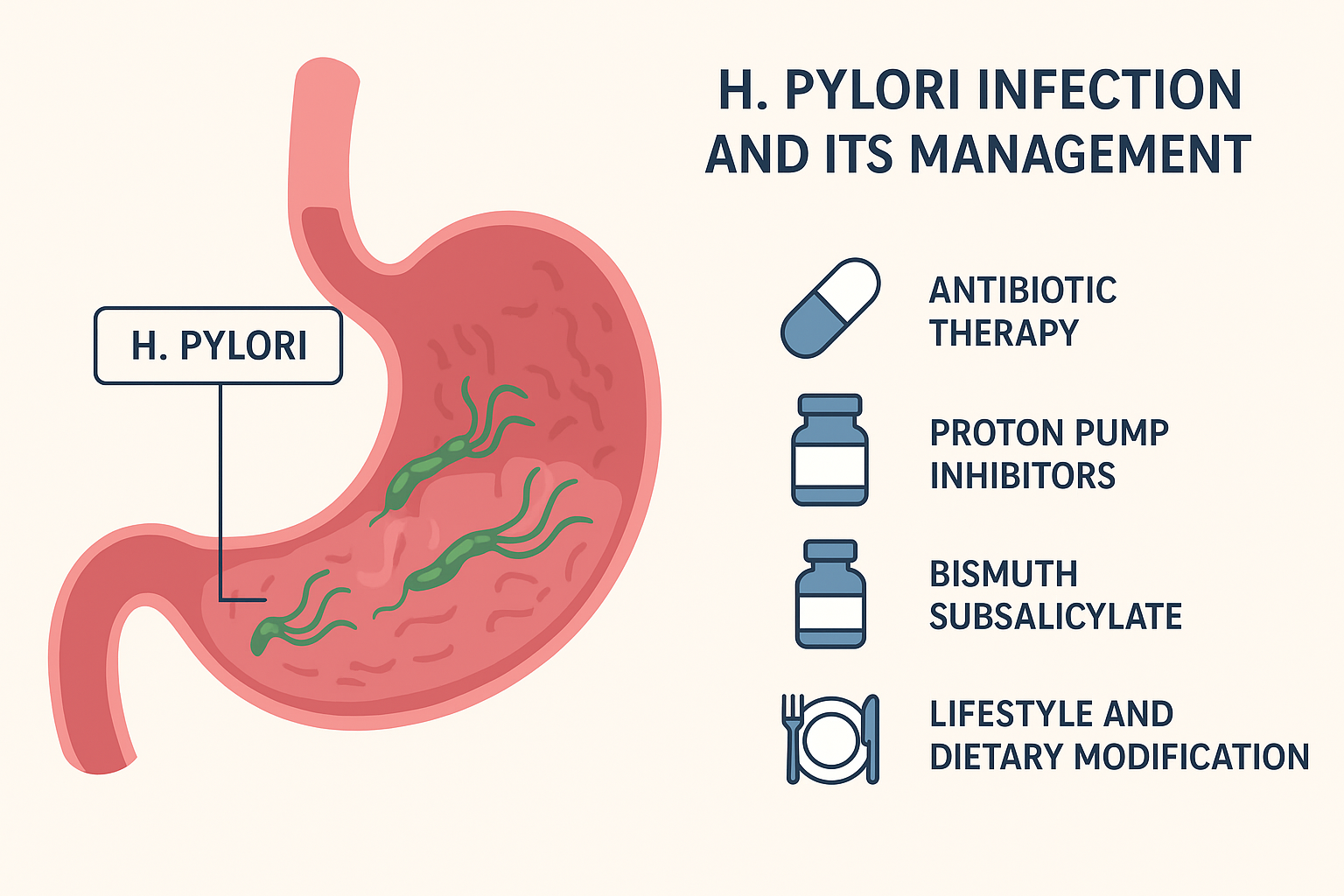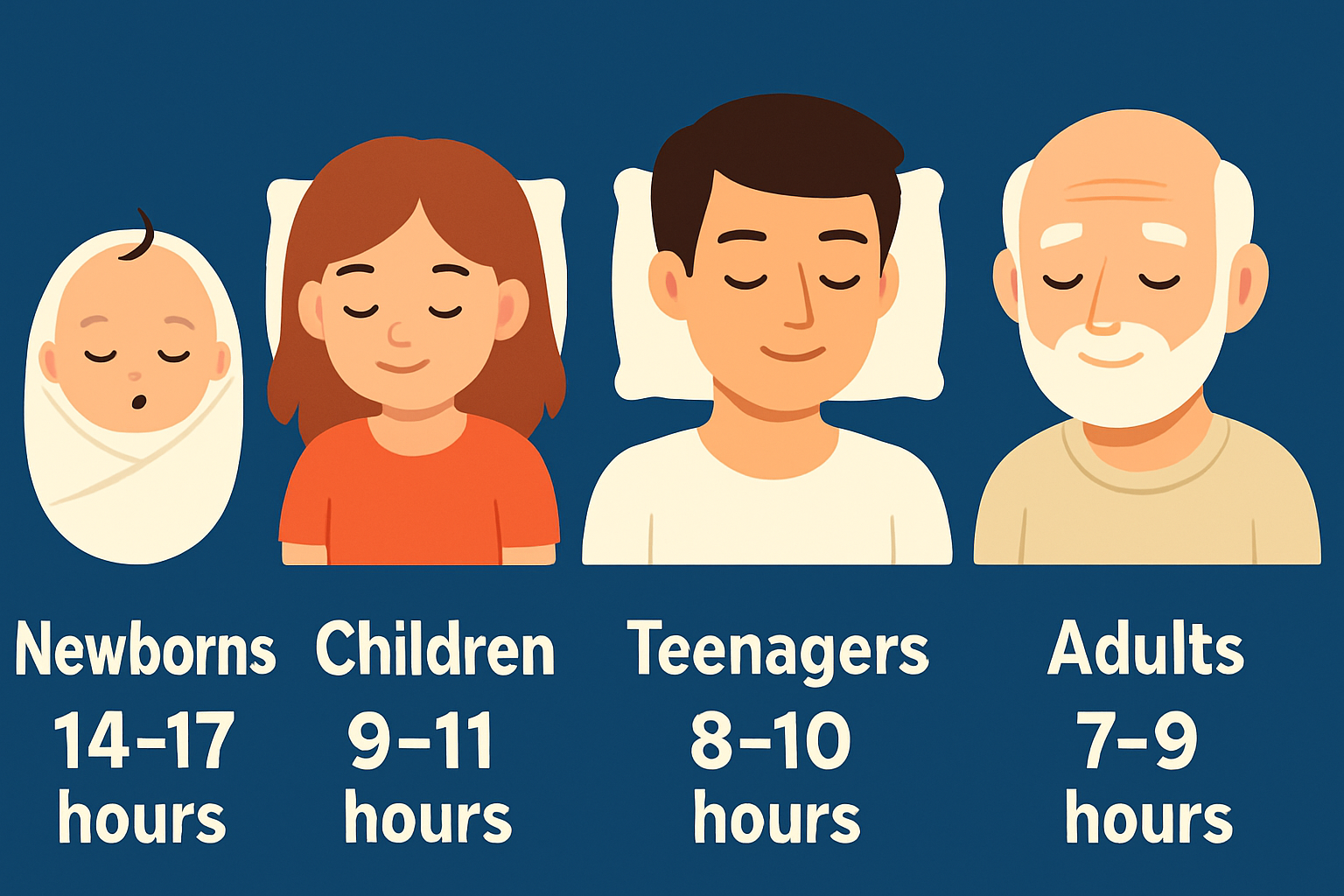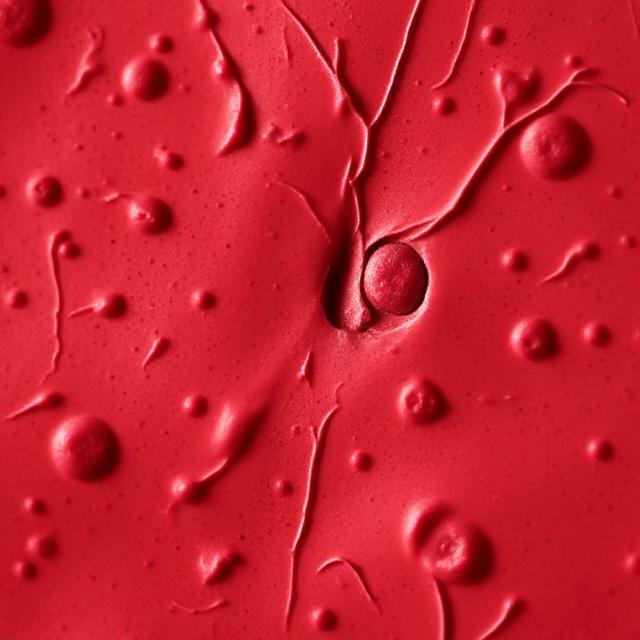Polycystic Kidney Disease (PKD) is a genetic disorder that causes multiple fluid-filled cysts to develop inside the kidneys. Over time, these cysts grow larger, making the kidneys swell and lose their ability to function properly. PKD is a chronic and progressive disease that can lead to kidney failure if not managed on time.
What is Polycystic Kidney Disease?
In PKD, clusters of cysts form inside the kidneys. Unlike normal kidney cysts that are usually harmless, PKD cysts grow and damage the surrounding tissue. The kidneys may become significantly enlarged and heavy, leading to serious complications.
There are two main types of PKD:
- Autosomal Dominant Polycystic Kidney Disease (ADPKD): The most common form, usually diagnosed in adulthood.
- Autosomal Recessive Polycystic Kidney Disease (ARPKD): A rarer and more severe form that appears in infancy or childhood.
Causes and Risk Factors
The main cause of PKD is genetic mutation passed down through families. If one parent has ADPKD, there is a 50% chance their child will inherit the condition. Risk factors include:
- Family history of PKD
- High blood pressure
- Chronic kidney disease in relatives
Common Symptoms of PKD
The signs and symptoms of polycystic kidney disease often worsen as cysts grow larger. Common symptoms include:
- High blood pressure (hypertension)
- Pain in the back or sides
- Enlarged abdomen due to kidney swelling
- Frequent urinary tract infections (UTIs)
- Blood in the urine (hematuria)
- Kidney stones
- Headaches
- Progressive kidney failure
Complications of Polycystic Kidney Disease
PKD is not limited to kidney problems; it can also affect other organs:
- Liver cysts
- Brain aneurysms (bulging blood vessels in the brain)
- Heart valve abnormalities
- Diverticulosis (pouches in the colon wall)
Diagnosis of PKD
Doctors diagnose PKD using a combination of:
- Ultrasound: Most common imaging test to detect cysts.
- CT scan or MRI: Provides detailed images of kidney size and cyst growth.
- Genetic testing: Confirms the inherited mutation.
Treatment and Management of PKD
Currently, there is no permanent cure for PKD, but treatment focuses on slowing disease progression and managing symptoms:
- Blood pressure control – medications like ACE inhibitors or ARBs.
- Pain management – for back or abdominal pain caused by cysts.
- Treatment of infections – antibiotics for urinary tract infections.
- Kidney function monitoring – regular blood and urine tests.
- Dialysis or kidney transplant – required in end-stage kidney failure.
- Newer medications – like Tolvaptan may slow cyst growth in some patients.
Lifestyle and Prevention Tips
Patients with PKD can protect kidney health by:
- Drinking adequate water daily (unless restricted by doctor).
- Following a low-salt, balanced diet.
- Avoiding smoking and alcohol.
- Maintaining a healthy body weight.
- Regular exercise to control blood pressure.
- Scheduling frequent medical checkups.
Conclusion
Polycystic Kidney Disease (PKD) is a lifelong condition that requires early diagnosis and proper management to prevent complications. While there is no cure yet, advances in treatment and supportive care have significantly improved the quality of life for patients. Regular monitoring, healthy lifestyle choices, and timely medical care are the keys to living well with PKD.




